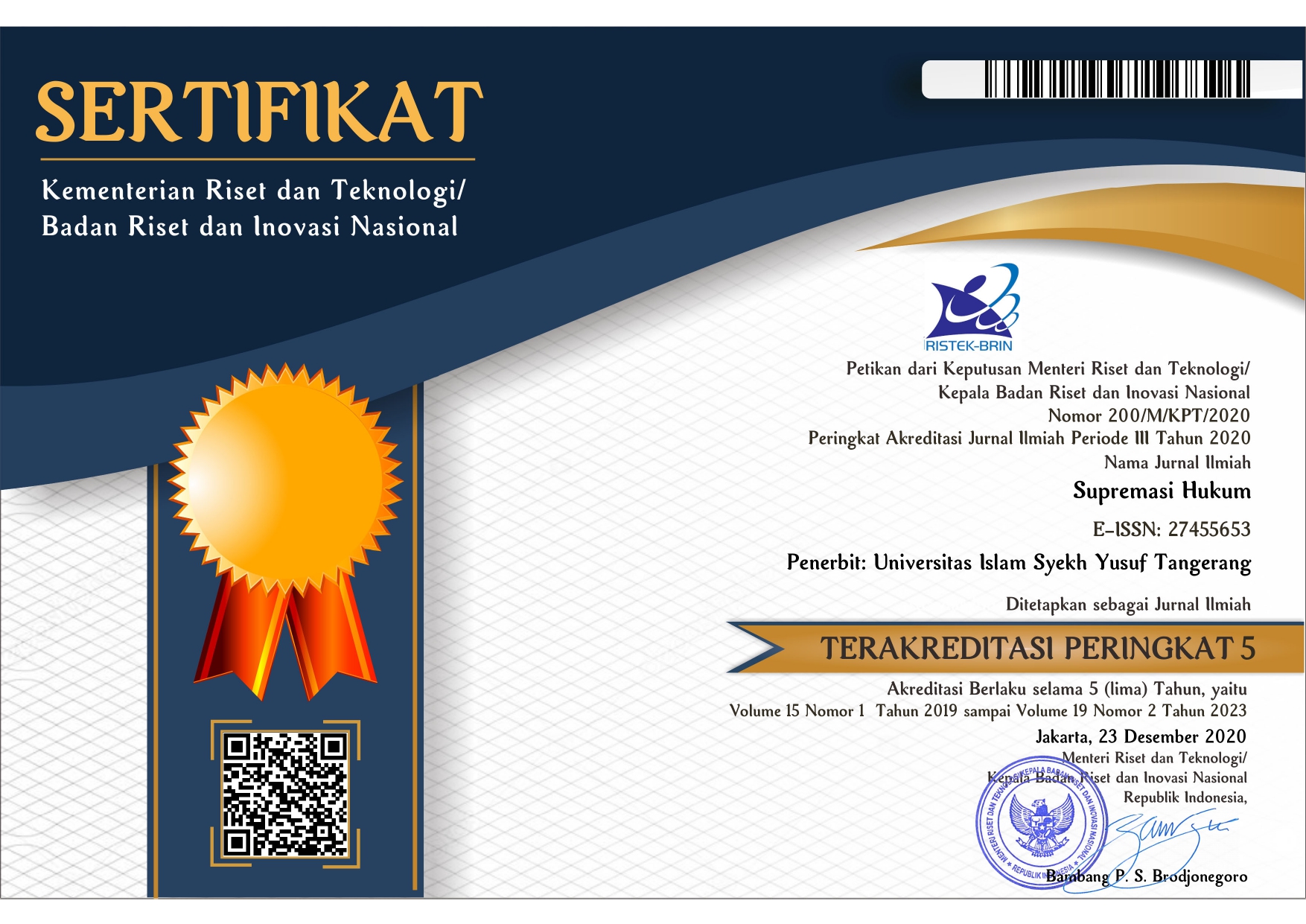PEMIKIRAN AHMAD RAJAFI TERHADAP GERAKAN PEMBARUAN HUKUM KELUARGA ISLAM DI INDONESIA: ANALISIS EVOLUSI SOSIAL DAN TEORI KONFLIK
DOI:
https://doi.org/10.33592/sh.v20i01.4545Abstract
This research reviews Ahmad Rajafi's thoughts on Indonesia's Islamic family law reform movement. Utilising literature-based research with qualitative research and descriptive-analytic analysis, where the primary data source is Ahmad Rajafi's works. Then, the data is processed and analysed using two main theories: Social Evolution theory and Conflict theory. The results show that from a historical perspective, the Old Order reflected early attempts to
remove colonial traces in family law, focusing on harmonisation between religion and national interests. The New Order involved conflict between religious groups over the 1974 Marriage Law, with concrete steps to achieve harmony between Islamic law and national interests by establishing the Compilation of Islamic Law. The Reformation era marked the debate on polygamy and the search for an Indonesian identity in family law, reflecting
the complexity of Indonesia's journey towards a just and inclusive legal system. In the social evolution and conflict theory analysis, family law reform is not only linear but influenced by conflict and changes in social values. This process reflects an active struggle to achieve gender justice and maintain local identity in the Indonesian context. This research concludes that Ahmad Rajafi's thoughts on family law change not only reflect adaptation to social and cultural changes but also involve an active struggle to achieve gender justice and maintain local identity in the Indonesian context.
Keywords: Ahmad Rajafi, Reform, Family Law, Indonesia, Social Evolution, Conflict Theory
Downloads
Published
Issue
Section
License
Copyright (c) 2024 SUPREMASI HUKUM

This work is licensed under a Creative Commons Attribution-NonCommercial-ShareAlike 4.0 International License.

Supremasi Hukum this site and metadata is licensed under a Creative Commons Attribution-NonCommercial-ShareAlike 4.0 International License



